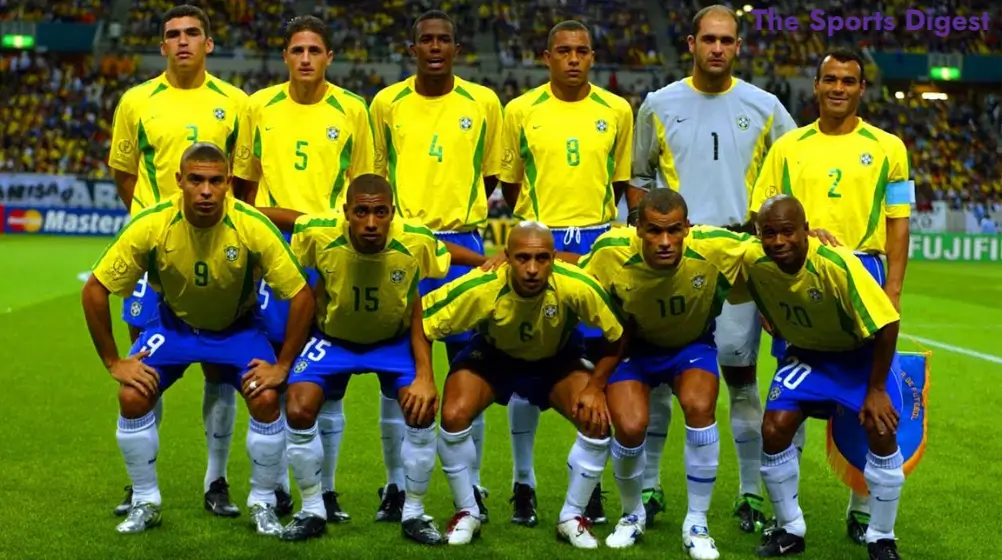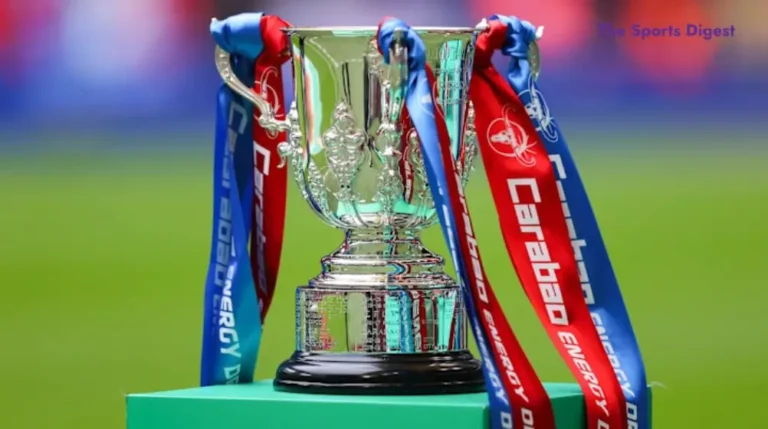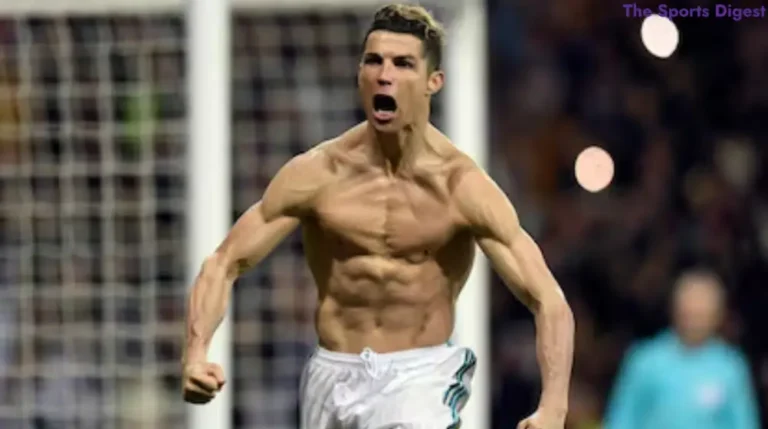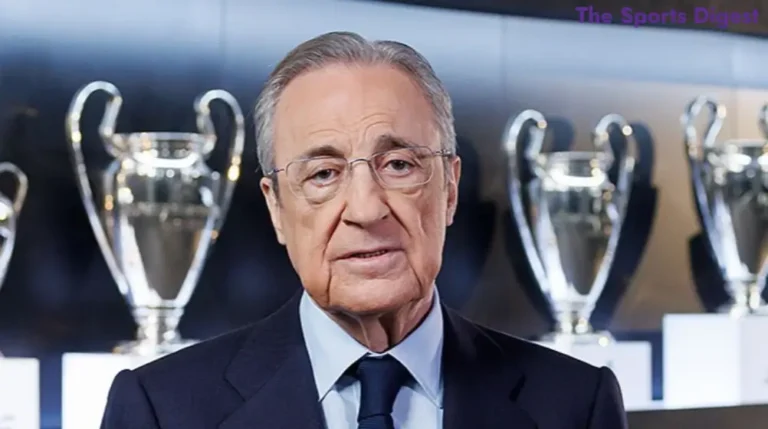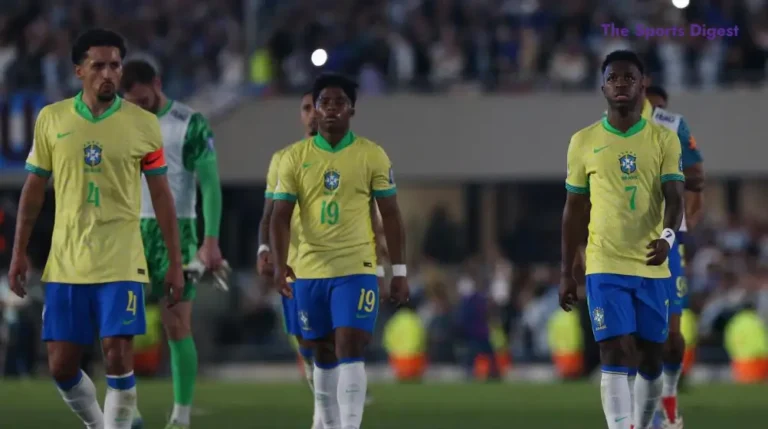Brazil 2002: Winning a Legendary Fifth Title
In the history of the FIFA World Cup, some moments are etched in the collective memory of football fans worldwide. Brazil 2002 stands as one of those unforgettable moments, with the team’s victory in the World Cup final, held in Japan and South Korea. This win was not just the crowning of a world champion, but a historic moment that showcased individual and collective achievements, cementing Brazil as the football powerhouse. In this article, we explore the history of this victory, the details of the final match, key events, and the accomplishments achieved by Brazil’s team in that tournament, alongside an analysis of key players like Ronaldo and Cafu.
Table of Contents
Prelude to Brazil 2002 World Cup
The 2002 World Cup was a tournament filled with expectations and speculations, as it was the first time the competition was held in Asia, and for the first time, 32 teams participated in the finals. Many teams were considered strong contenders, but Brazil, under the management of Luiz Felipe Scolari, stood out as the team to watch, especially after their impressive performances in the qualifiers and the preparatory matches.
Brazil 2002: A Perfect Combination for Success
The Brazil 2002 squad was filled with exceptional talent, led by Ronaldo “The Phenomenon,” who was in peak form after recovering from a serious injury. His leadership in attack ensured Brazil’s offensive dominance throughout the tournament. Cafu, the team captain, also made history by becoming the first player ever to appear in three World Cup finals. Together, they formed a powerful duo, with Ronaldo’s goals and Cafu’s leadership driving Brazil towards their fifth World Cup title. Their contributions were pivotal in securing Brazil’s place at the top of world football.
The Final Match: The Defining Moment
Brazil’s dominance was on full display in the Brazil 2002 World Cup final, held on June 30, 2002, at the Yokohama Stadium in Japan. The opponent in this match was Germany, seeking their fourth World Cup title. Although the two teams had never faced off in a World Cup final before, the match was filled with excitement and anticipation. Germany had performed admirably throughout the tournament, but Brazil showed their superiority from the start.
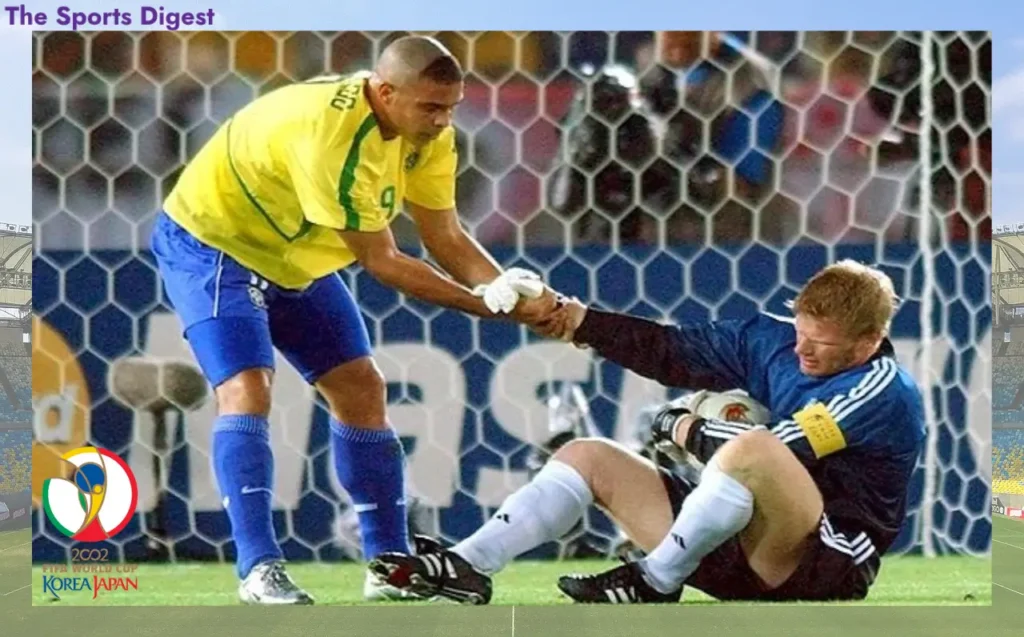
In the 67th minute, Ronaldo scored the first goal following a defensive error from the German defender. Then, in the 79th minute, he scored again, bringing the score to 2-0 in Brazil’s favor. With these two goals, Ronaldo led Brazil to their fifth World Cup title, becoming the tournament’s top scorer and earning the Golden Boot.
Ronaldo’s Achievements and Stats
Ronaldo’s goals in the final were crucial, sealing Brazil 2002‘s fifth World Cup title. His performance in the tournament was extraordinary, scoring five goals and confirming his status as one of the greatest strikers in World Cup history. These goals not only ensured Brazil’s victory but also symbolized Ronaldo’s incredible comeback after a serious injury that had threatened his career. This triumph was a testament to his resilience and skill, marking a moment of personal redemption and footballing excellence. Ronaldo’s success in 2002 remains a defining chapter in World Cup history.
Cafu: A Historic Achievement in the World Cup Final
Cafu’s participation in the Brazil 2002 World Cup final remains one of the most memorable moments. He made history by becoming the first player to appear in three different World Cup finals: 1994 in the United States, 1998 in France, and 2002 in South Korea and Japan. His leadership as captain was invaluable, especially in the final, where his defensive contributions helped secure Brazil’s 2-0 victory. Cafu’s experience and composure under pressure were key factors in maintaining a clean sheet and guiding Brazil to their fifth World Cup title. His achievement cemented his legacy as one of the game’s greats.
The Significance of This Victory for Brazil
With their 2002 World Cup victory, Brazil became the first and only nation to win five World Cups, a feat unmatched by any other country. This triumph added another chapter to Brazil’s rich football legacy, following their earlier successes in 1958, 1962, 1970, and 1994. Brazil’s dominance in the World Cup further cemented their reputation as the greatest football team in history. Their consistent excellence across decades highlighted their unmatched ability to produce world-class talent. The 2002 win served as a testament to Brazil’s footballing supremacy on the global stage.
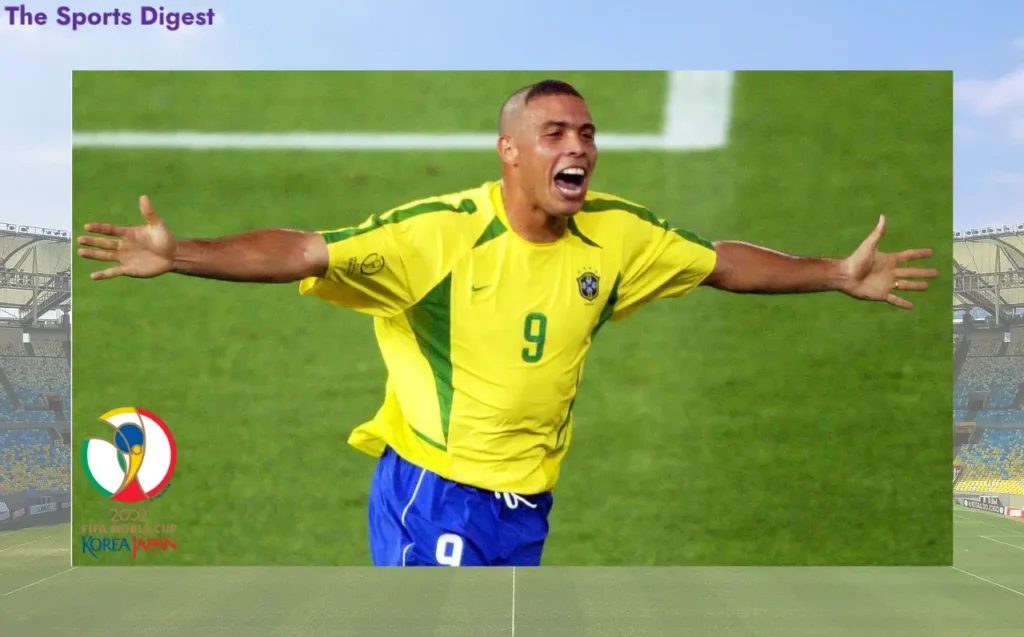
Other Players Who Contributed to the Victory
In addition to Ronaldo and Cafu, many other players played pivotal roles in Brazil 2002 World Cup success. Rivaldo, one of the key figures in the attack, and Ronaldinho, who produced magical moments in the matches leading to the final, were instrumental. Didi, Túlio, and Zé Roberto were also crucial in midfield, while Brazil’s defense, led by Roberto Carlos, was resolute against German attacks.
Tactical Side: Scolari’s Intelligence in Leading the Team
Coach Luiz Felipe Scolari was the strategic mastermind behind Brazil’s 2002 World Cup victory. He adopted a balanced approach, combining a strong defensive setup with an explosive attack. Scolari maximized the potential of his players, ensuring that they played to their strengths. His tactical acumen allowed Brazil to neutralize opponents’ threats while launching powerful counterattacks. Under his leadership, the team executed a disciplined and effective style of play that was both resolute in defense and dynamic in attack. Scolari’s guidance was crucial in leading Brazil to their fifth World Cup title.
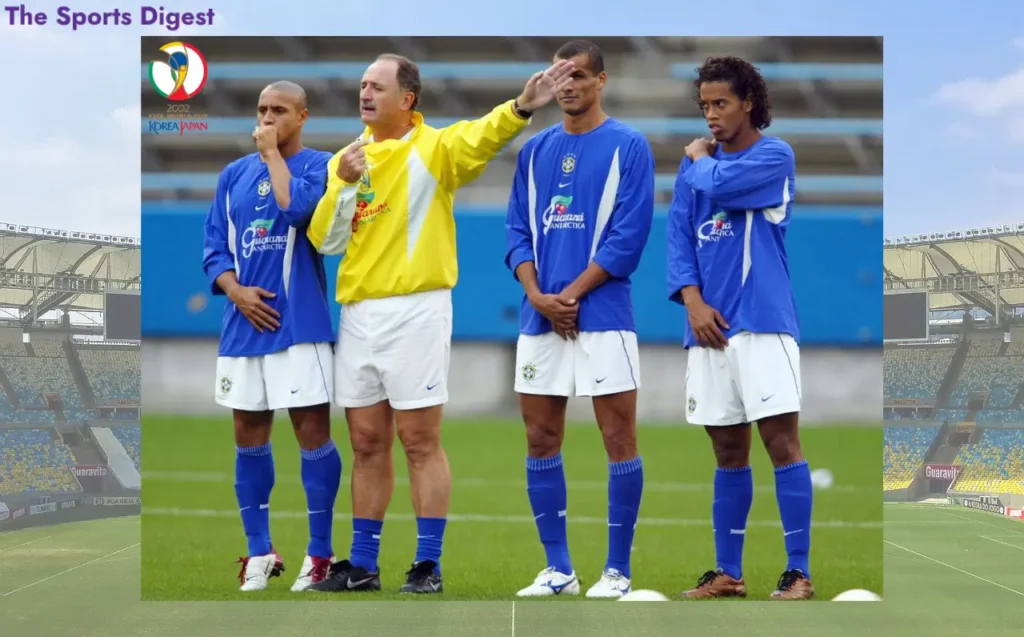
Conclusion
Coach Luiz Felipe Scolari was the tactical genius behind Brazil 2002 World Cup win. He crafted a strategy that blended solid defense with potent attacking power. By understanding his players’ strengths, he maximized their potential, ensuring each one contributed effectively. Scolari’s ability to stifle opponents’ attacks while unleashing Brazil’s offensive power was key to their success. His approach created a balanced, disciplined team that dominated throughout the tournament. This strategic brilliance played a major role in securing Brazil’s fifth World Cup title.
Have you ever read an article like this?
There are no reviews yet. Be the first one to write one.
